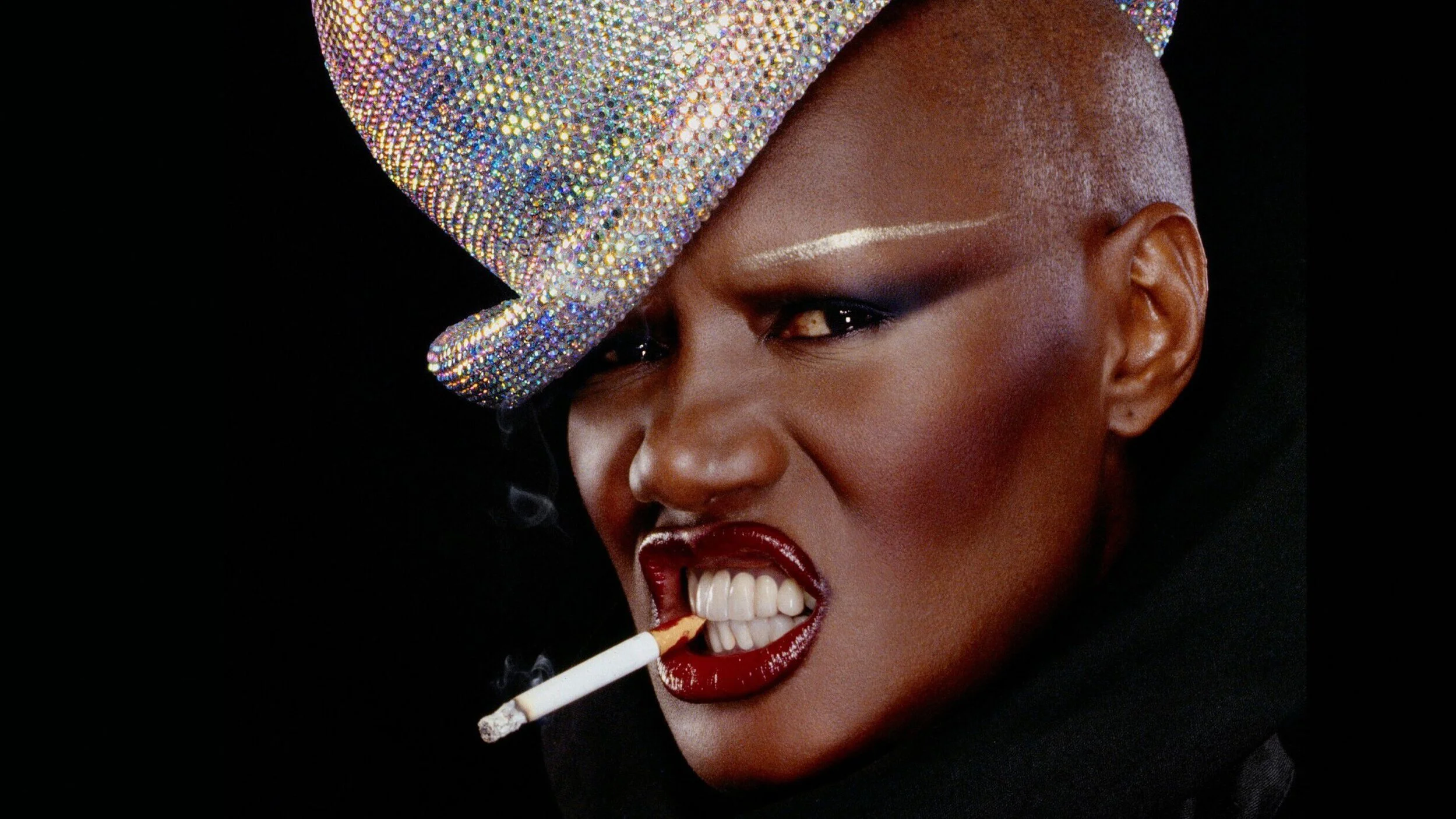Grace Jones: Bloodlight and Bami
Light the lights for Miss Grace Jones.
That Grace Jones is an artist who commands a stage and does so with a unique and perfected image is wonderfully apparent during the first two thirds of this film about her by Sophie Fiennes. That image extends beyond the power of her voice since it involves an accentuation of androgyny, the male and the female being sharply present both in her appearance and in her vocal delivery. Utterly different from the late Marlene Dietrich though she is, the two women have a remarkable amount in common and, until its last third (which feels like a different movie altogether), this film by Fiennes (she edits as well as directing it) comes across with strong echoes of Dietrich's cabaret show.
Most movies about singers are either biopics or else come close to being filmed concert events. Here, in contrast to either, we have what looks like a perfect meeting between subject and filmmaker in what is a properly cinematic piece albeit built around stage appearances and rehearsals. It comes with passing intercut footage showing Jones in Jamaica and in Paris. But there is no detailed past history with old footage, no commentary and no clear indication of the period over which the filming was taking place. Instead, this is an impressionistic work of Jones's present day-to-day life concentrating on her stage show but incorporating just as much of her story as she wishes to reveal. One song is directly linked to her history but in general what she lets through is comparable to the references to her past that Dietrich would incorporate into her stage show.
That thought brings out the fact that much of the film is akin to a show while also evidencing the happy fact that Fiennes, in new territory here, reveals a cinematic gift for filming musical numbers. But the Dietrich comparison goes much further, both artists outdoing any rival by being demanding perfectionists who completely understood the image that they were presenting and went on undimmed by age. Unfortunately, the last third of this overlong film has a quite different tone and manner from what has gone before: there's less music and much more extensive footage about Jones's family. This is very disappointing since until then it has been absorbing and possessed of a character all its own. Given the Dietrich parallel, it is fascinating to find that Jones performs a very original version of one song that was in Dietrich's repertoire too, La Vie en Rose. As it happens, it is the one rendering which, seen in rehearsal, she disparages, but her magnificent tirade concerns not the song but the staging. It's doubtless part of the image that Jones wants to project and which Fiennes brings to us in this remarkably uneven but often fabulous film.
MANSEL STIMPSON
Featuring Grace Jones, Noel Jones, Sly Dunbar, Robbie Shakespeare, Jean-Paul Goude, Damon Albarn.
Dir Sophie Fiennes, Pro Katie Holly, Sophie Fiennes, Beverly Jones and Shane Hinton, Ph Remko Schnorr, Ed Sophie Fiennes.
Sligoville/Amoeba Film/Blinder Films/BBC Films/BFI/Roads Entertainment/The Irish Film Board-Curzon Artificial Eye.
115 mins. Ireland/UK/Austria/France/Germany. 2017. Rel: 27 October 2017. Cert. 15.


